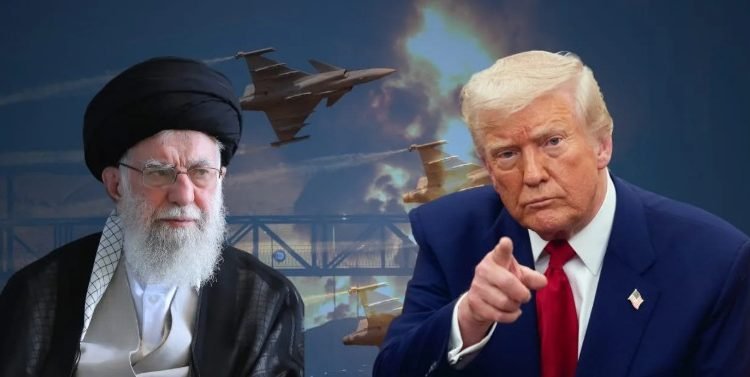U.S. President Donald Trump has once again invoked his familiar “two weeks” timeline, delaying a decision on potential military action against Iran. The announcement came amid mounting tensions between Iran and Israel, following days of deadly airstrikes and missile exchanges.
White House: Decision Within Two Weeks
At a press briefing on Friday, White House Press Secretary Karoline Leavitt read President Trump’s statement:
“Based on the fact that there’s a substantial chance of negotiations that may or may not take place with Iran in the near future, I will make my decision whether or not to go within the next two weeks.”
The decision centers on whether to authorize U.S. strikes on Iranian nuclear facilities, including the Fordow site, in response to the escalating regional violence.
Rising Death Toll in Iran-Israel Clashes
The conflict has intensified over the past nine days, with Israeli airstrikes and Iranian missile retaliations killing 452 people in Iran and 24 in Israel, according to official government reports.
A Repeated Trump Strategy
Trump’s “two weeks” promise has become a hallmark of his political rhetoric. During his 2024 campaign, he used the phrase when speaking on topics such as tax reform and Ukraine aid, often delaying action, as noted by NPR. In May 2025, he made a similar promise about pharmaceutical tariffs, which also resulted in postponement, per The New York Times.
“It’s a classic Trump move to buy time and keep options open,” said Brett McGurk, a former National Security Council official, on CNN. He added that while the delay allows for diplomatic flexibility, it risks signaling indecisiveness.
Iran Rejects Ultimatums, Warns U.S.
Iranian Foreign Minister Abbas Araghchi firmly rejected what he described as Trump’s demand for “unconditional surrender,” warning of “irreparable damage” should the U.S. choose to intervene militarily, according to Reuters.
U.S. Military Presence in the Region Expands
Despite the diplomatic rhetoric, the U.S. has significantly bolstered its military presence in the Middle East. Two carrier strike groups and 21 refueling tankers have been deployed. However, Defense Secretary Pete Hegseth emphasized on Fox News that these moves represent a “defensive posture.”
Criticism and Support Split Across Party Lines
The delay has drawn sharp criticism from some quarters. Democratic Senator Chris Murphy told Fox News the indecisive approach “makes America look weak.”
Conversely, key Trump allies, including Vice President JD Vance and CIA Director John Ratcliffe, support continuing diplomatic outreach. Special envoy Steve Witkoff has been in contact with Iran’s Abbas Araghchi via phone, seeking a peaceful resolution, Reuters reported.



Comments are closed.